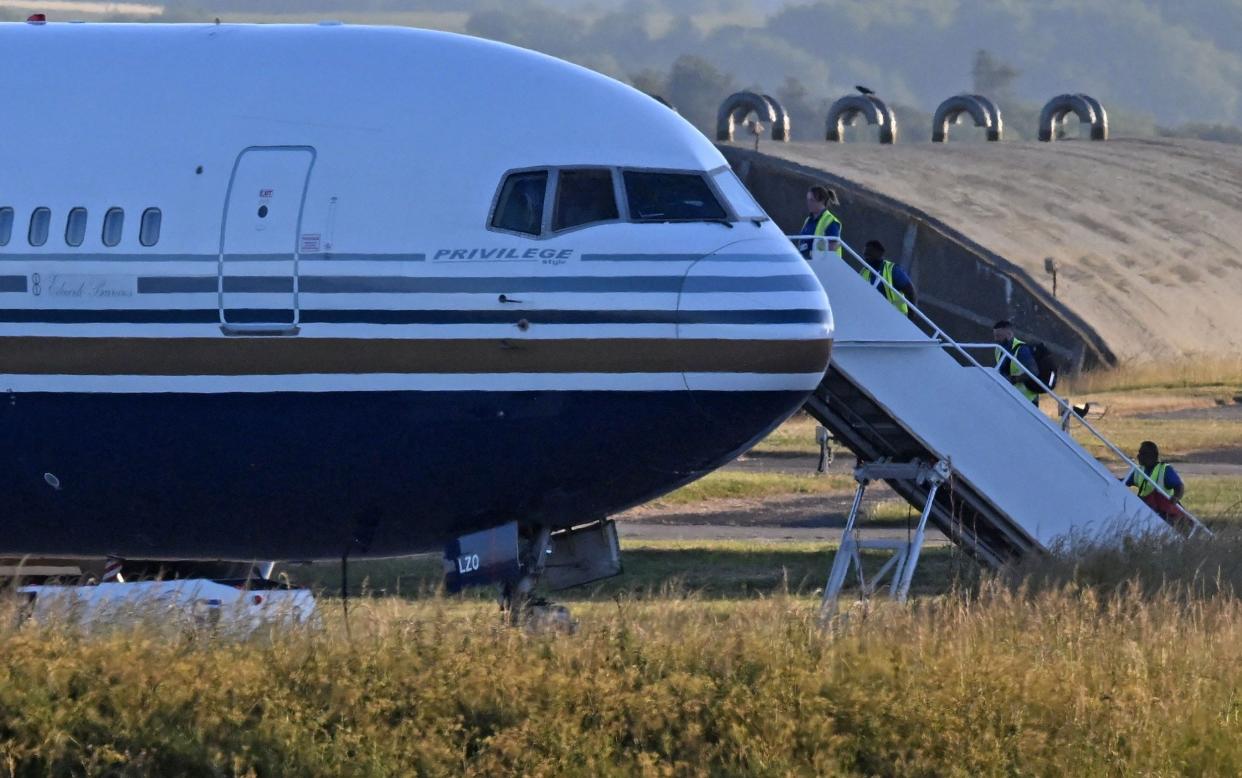The Rwanda policy must be put into action

The planes have been chartered, an airfield is ready, border staff are standing by, and the first deportees have been identified. Rishi Sunak’s Rwanda plan for stopping the boats is in place, he said today. Why, in that case, will it be weeks before the first aircraft takes off?
The protracted political battle and the hold up in the House of Lords – for which the Labour Party should be held primarily responsible – are among the obvious reasons why the flights have not already been allowed to start. But once the legislation is law, what is there to delay the scheme?
The clue was in Mr Sunak’s announcement that 25 courtrooms and 150 judges have been earmarked to deal with the expected legal challenges. This is the supposed flaw that Suella Braverman, the former home secretary, and Robert Jenrick, the ex-immigration minister, warned about. They wanted the Bill tightened up to obviate any scope for judicial activism but failed to get their way.
They say loopholes would allow individuals to challenge their deportation on the basis that Rwanda would not be safe for them specifically, even if it was deemed a safe country overall. The Government maintains that this would affect just a tiny group. It will need to prove its critics wrong.
Mr Sunak said there was scope for 5,000 sitting days. Many voters will want the judiciary to take advantage of these resources to consider cases as rapidly as possible in order to facilitate removals.
There is the possibility of a series of judicial decisions and appeals that could conceivably end up once again in the Supreme Court. It ruled last year that the policy of sending asylum seekers to Rwanda was unlawful because the country was unsafe. This judgment is what prompted the Government to bring forward the Bill insisting that it was safe.
The courts are also required to disregard other British laws or international rules – such as the UN Refugee Convention – which stand in the way of deportations to Rwanda. The question is whether the reassertion of parliamentary sovereignty in the Bill can withstand a clash with the courts.
It must do so. Mr Sunak says his patience has run out with all the obstacles placed in the way of the policy. The public’s patience with the Channel crossings has been wearing just as thin. Left-wing open borders extremists, including in Whitehall, will contemplate no action to bring the situation back under control. They have to be defeated.

 Yahoo News
Yahoo News 
